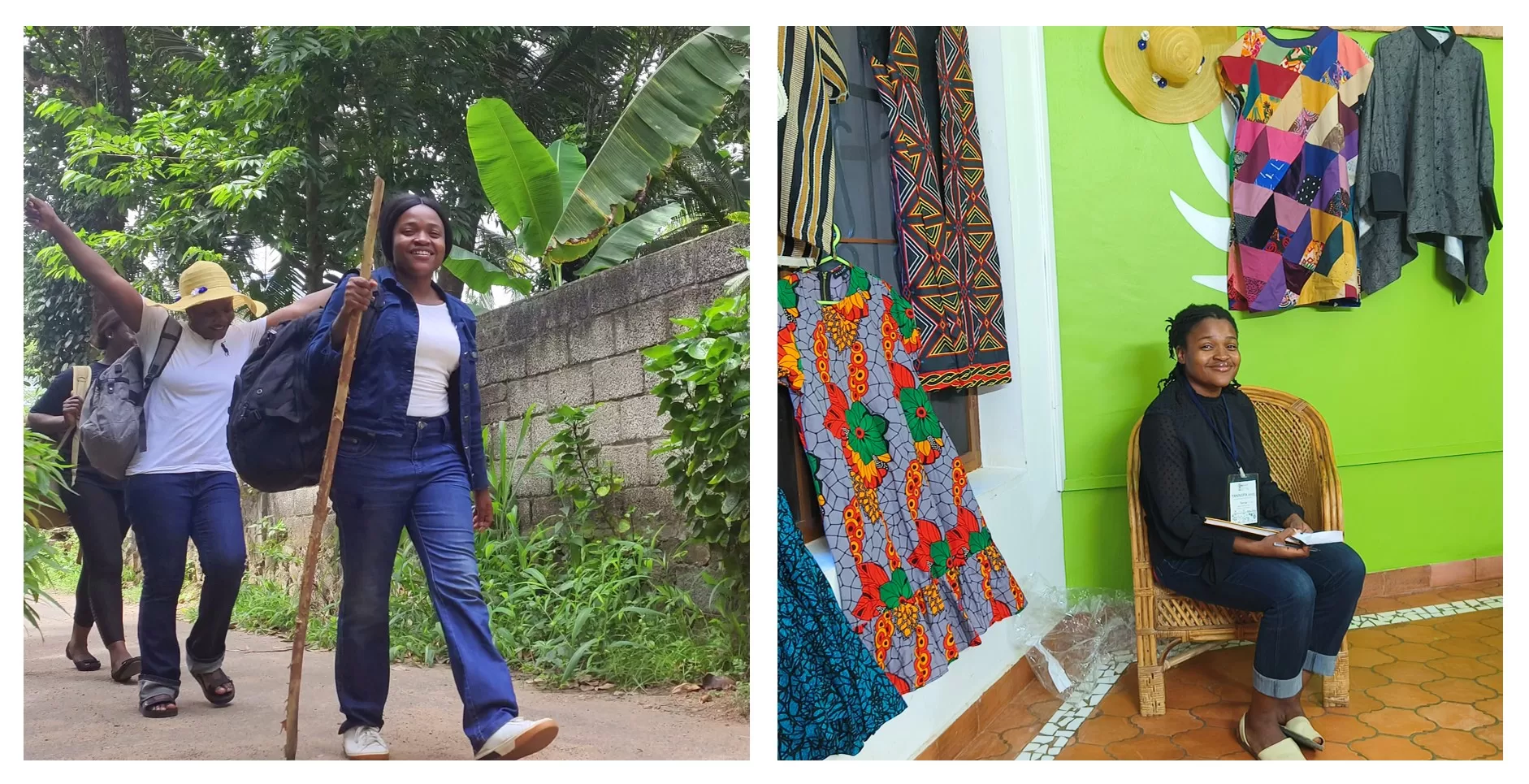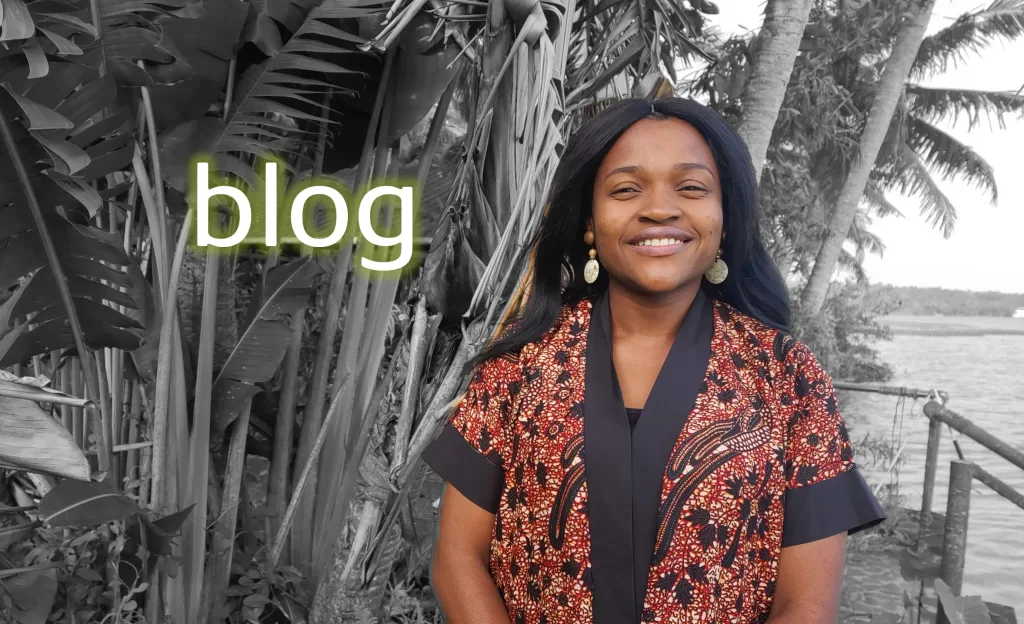kanthari blog – Esther Oke – Nigeria
I was in my third year, trapped in a lecture hall I hated. The professor was talking about complex formulas, but all I heard was noise. I felt like a fraud pretending to be a student. I looked again at the photograph of our village’s only clinic at the back of my notebook and remembered my father’s words, “This is why you’re going.” These words felt like a life sentence. When the class ended, I made a choice. I stood up, walked out, and never looked back.
I spent my childhood lost in my own perfect, self-made world. I would add details from the wealthy homes we visited and stories I overheard and share them with my friends. They often called me delusional. This made me spend time in our backyard alone, using charcoal to draw on the brick wall. I’d talk to myself, giggle, and laugh alone. Our neighbours noticed and told my mom that only “possessed” children acted that way. From then on, she would beat me whenever she found me playing alone, asking if I was having a party with spirits.
I didn’t dare to express my goals because my teachers and father had manufactured them for me already. Being a nurse, my father was dedicated to our village, even building a local clinic. He would wake me up at 3 am to say, “Esther, you must become a doctor to continue this work; who knows? You may be the one to lift this family.” I felt immense responsibility to everyone, but especially to him. Yet, in the privacy of my room, I wrote stories about becoming an artist.
My family’s investments in extra lessons and my dedicated studying paid off when I got accepted into the country’s best medical college. The news led to a village-wide celebration, with elders thanking me for my hard work, and the youth admired me, believing I had it all figured out.
Then came a life-threatening diagnosis, and I had to go through surgery. On the way back from the hospital, I saw an art studio by the roadside. I couldn’t stop thinking about the images I’d only seen for seconds. I begged my parents to let me go there. Though they were hesitant, they wanted me to recover quickly and agreed. For two months, I went twice a week. Those were the best days of my teenage years, and I understood that art was valuable.

Upon recovery, I had to go to university. Financially, I was different from most students; while they spent their evenings socializing, I sold food under a small umbrella by the roadside. My memories of joy in the art studio made me realise that I didn’t want to be a doctor, but I didn’t want to disappoint my family either. Three years in, I decided to withdraw from school. My family was shocked and heartbroken. My only brother stopped speaking to me, and the little support I had from home stopped to make me ‘come to my senses’. Weeks turned into months; I was alone, facing an uncertain future.
I returned to my drawing board and felt alive again. I taught myself to paint, make shoes, bake, and design digitally. I was able to freelance, showcase my artworks in exhibitions, and open my studio.
This new sense of purpose allowed me to save enough money to travel with a friend to Owo, where we planned to teach other young people. We found that the youth there were idle and lacked purpose. We connected with them at a public school where I secretly slept in a classroom, waking up before the students arrived to avoid being discovered.
Recognizing a skills gap, we started teaching everything we knew, from baking to craft and catering. The youth started transforming: the skills they gained gave them a new sense of purpose and direction, and many of them became successful business owners. Their mindsets shifted, and they began to feel valued.
In rural Nigeria, teenage girls face systemic barriers that crush their potential. With 40-50% of young women not in education, employment, or training, and child marriage rates double those in urban areas, many girls find their futures cut short. One in five Nigerian girls aged 15-19 are already mothers, often abandoning education for domestic responsibilities.
The core challenges are deeply rooted: patriarchal norms that devalue female education, lack of career guidance and role models, and financial constraints that leave families seeing no value in investing in girls’ futures. While existing programs offer vocational training, there’s a critical gap in developing the curiosity, resilience, and self-leadership skills girls need to create their own paths. Now, my mission is bridging this gap, empowering rural Nigerian girls with confidence and vision to chart fulfilling lives.
Read more kanthari blog posts on: https://www.kanthari.org/coronablog/



